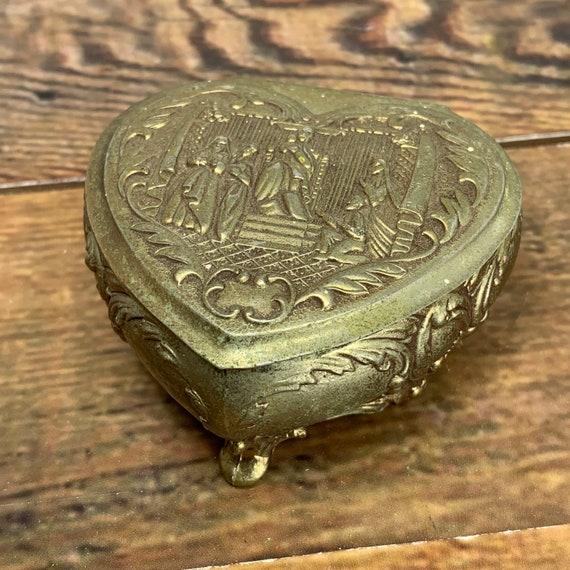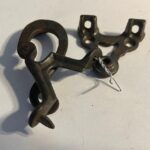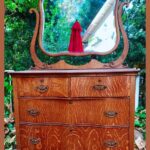In an age where fast-paced lifestyles often overshadow the charm of tradition, the vintage shaving brush stands as a timeless testament to the artistry of grooming. Once a staple in the daily rituals of gentlemen, this simple yet sophisticated tool whispers stories of elegance and nostalgia. Crafted with exquisite bristles and ornate handles, vintage shaving brushes not only enhance the shaving experience but also encapsulate an era when personal care was revered as an art form. As we delve into the history, craftsmanship, and enduring appeal of these brushes, we invite you to explore how they bridge the gap between the past and present, transforming a mundane routine into a luxurious ritual.
The Art of Vintage Shaving Brushes: A Journey Through Time
The world of vintage shaving brushes is a testament to fine craftsmanship and timeless elegance. Each brush tells a story through its materials and design, often showcasing a rare blend of function and artistry. Bristles made from badger hair, boar, or synthetic fibers not only represent a range of quality and performance but also reflect the evolution of shaving culture over the decades. Collectors and enthusiasts alike treasure the handles crafted from wood, ivory, and resin, each unique piece bearing the mark of the artisan and the period from which it originated. As you hold one of these brushes, you are not just holding a tool for grooming; you are connecting with the past—a link in a chain that spans generations of shaving tradition.
The revival of vintage shaving has seen these brushes take center stage in modern grooming regimens. Passionate aficionados often seek out vintage pieces for their functional excellence as well as their aesthetic appeal. In this journey through time, we can categorize these brushes into various styles and characteristics:Springbok Vintage PuzzlesUnderwood Typewriter Vintage
| Brush Type | Key Features | Era |
|---|---|---|
| Silvertip Badger | Soft, luxurious feel; dense bristles | 20th Century |
| Boar Hair | Stiff, great for lathering; affordable | Early 1900s |
| Synthetic | Durable, fast-drying; varied feel | Contemporary |
The artistry of vintage shaving brushes transcends mere functionality; they are an experience woven into the ritual of grooming. Each brush embodies the spirit of the era from which it hails, serving as a reminder of the value placed on personal care and grooming practices throughout history. Whether they are displayed proudly in a collection or used daily, these brushes continue to captivate those who appreciate their beauty and heritage.
Materials Matter: Understanding Different Brush Types
When it comes to vintage shaving brushes, the choice of materials plays a pivotal role in the quality of the lather and the overall shaving experience. Traditional brushes were predominantly made from natural materials, each one bringing its unique benefits to the table. The most common materials include:
- Badger Hair: Renowned for its softness and ability to hold water, badger hair remains a favored choice among enthusiasts for its luxurious feel.
- Bristle Hair: Stiffer than badger hair, bristle brushes are perfect for exfoliating the skin and creating a rich lather, making them suitable for the classic wet shave.
- Synthetic Fibers: Modern advancements have produced high-quality synthetic materials that mimic the qualities of natural hair while being more durable and easier to clean.
In terms of construction, the handle of a vintage shaving brush often tells a story of craftsmanship, with materials ranging from simple wood to elegant resin finishes. Each design variant influences not only aesthetic appeal but also functionality. Here’s a quick comparison of popular handle materials:
| Handle Material | Characteristics |
|---|---|
| Wood | Natural feel, classic look, may require maintenance. |
| Resin | Durable, vibrant colors, resistant to water damage. |
| Metal | Modern aesthetic, weighty feel, easy to clean. |
Techniques for Care: Ensuring Longevity of Your Vintage Brush
To maintain the elegance and functionality of your vintage shaving brush, it’s essential to adopt a few care techniques that will ensure its longevity. Start by rinsing the brush with warm water before and after each use, allowing the bristles to soft and cleanse. Avoid using hot water, as it can damage the knots. Ensure to shake off excess water and stand the brush on its handle to let it dry completely. This prevents moisture from settling in the resin or wood, which could lead to mold or deterioration over time. Additionally, consider using a brush stand to preserve its shape and prevent bristle splaying when not in use.
Regular cleaning is crucial for maintaining hygiene and preserving the brush’s quality. Follow these simple guidelines:
- Deep Cleaning: Mix a few drops of gentle shampoo with warm water and allow the bristles to soak for several minutes, then rinse thoroughly.
- Conditioning: Occasionally treat the bristles with natural oils, such as jojoba or almond oil, to keep them supple.
- Storage: Store the brush in a cool, dry place away from direct sunlight to prevent fading and cracking.
Here’s a quick reference table for your care routine:
| Care Technique | Frequency |
|---|---|
| Rinse before use | Each use |
| Deep clean | Every month |
| Condition bristles | Every three months |
| Inspect for shedding | Each use |
Choosing Wisely: How to Select the Perfect Vintage Shaving Brush
When it comes to selecting a vintage shaving brush, the choices might seem overwhelming at first. However, understanding a few key factors can help you make an informed decision. Start by considering the type of bristles. Badger hair is prized for its softness and water retention, with its three main grades—Silver Tip, Best Badger, and Pure Badger—each offering different qualities. Boar bristle brushes provide a firmer feel and are excellent for creating lather, particularly with hard soaps. Synthetic fibers are also worth considering, as they can mimic the feel of natural hair while being more sustainable and easier to maintain.
Additionally, the handle material and design play a vital role in both aesthetics and functionality. Look for materials like wood, resin, or metal that not only enhance your shaving experience but also stand the test of time. Pay attention to the weight and grip of the brush, as they contribute significantly to comfort during lathering. Below is a simple comparison to help guide your decision:
| Brush Type | Softness | Water Retention | Price Range |
|---|---|---|---|
| Badger Hair | Very Soft | Excellent | $$$ |
| Boar Bristle | Medium Firm | Good | $$ |
| Synthetic | Variable | Good | $ |
Revisiting Tradition: Why Vintage Brushes Outshine Modern Alternatives
The charm of vintage shaving brushes lies not just in their aesthetic appeal but also in their superior functionality. Crafted with meticulous attention to detail, these brushes often feature natural hair from badgers, boars, or horses, which provides an exceptional lathering experience that modern synthetic alternatives struggle to replicate. Natural fibers offer remarkable water retention and heat stability, enhancing the overall shaving ritual. As a result, the rich and luxurious foam produced with vintage brushes can elevate your grooming routine to a delightful sensory experience.
Moreover, the durability and timeless craftsmanship of vintage brushes ensure that they not only perform well but also stand the test of time. When you choose a vintage brush, you’re not just investing in a grooming tool; you’re embracing a piece of history. Consider the following advantages:
- Eco-Friendly Materials: Often made from sustainable resources.
- Increased Longevity: Designed to last a lifetime with proper care.
- Unique Designs: Each brush tells a story and carries its own character.
Q&A
Q&A on Vintage Shaving Brushes
Q1: What is a vintage shaving brush?
A1: A vintage shaving brush is typically a brush that has been used for traditional wet shaving, crafted with materials and designs that reflect the styles and methods of the past. These brushes are often made from natural bristles, such as badger or boar, and feature handles made from various materials like wood, plastic, or metal. Collectors often value these brushes for their craftsmanship, historical significance, and the nostalgia they evoke.
Q2: How can I identify a vintage shaving brush?
A2: Identifying a vintage shaving brush can often be achieved by examining key features such as the handle material, design, and the type of bristle. Look for signs of craftsmanship, such as artisan markings or unique designs that may hint at its origin. Additionally, many vintage brushes will have a patina that comes from years of use, setting them apart from modern counterparts that often have a more polished, factory-made appearance.
Q3: Are vintage shaving brushes still functional?
A3: Absolutely! Vintage shaving brushes can still be very functional if they are well-preserved. Many enthusiasts appreciate the softer, more absorbent natural bristles of older brushes, as they can provide an excellent lathering experience. However, before using a vintage brush, it’s essential to check the condition of the bristles and handle to ensure it is suitable for use. Restoration is possible for brushes that show wear and tear.
Q4: Should I buy a vintage shaving brush, and what should I look for?
A4: Owning a vintage shaving brush can be a rewarding experience, especially if you appreciate history, craftsmanship, or nostalgia. When considering a purchase, look for a brush that feels comfortable in your hand, has bristles in good condition, and showcases a design that resonates with you. Additionally, checking for authenticity and provenance can add to your confidence as a buyer.
Q5: How do I care for a vintage shaving brush?
A5: Caring for a vintage shaving brush is akin to caring for any other shaving tool. Rinse the brush thoroughly after each use to remove all lather and hair products. Hang it upside down or lay it flat to dry to avoid water damage. Periodically, you may want to give it a more thorough cleaning with gentle soap and warm water to ensure that accumulated residue doesn’t compromise its performance or appearance.
Q6: Where can I find vintage shaving brushes?
A6: Vintage shaving brushes can often be found in antique shops, specialty barber shops, online marketplaces like eBay, and vintage thrift stores. Collectible forums and social media groups dedicated to wet shaving are also excellent resources for locating these brushes. Be sure to research sellers’ reputations and guarantees when buying online to ensure you receive a quality item.
Q7: Why are vintage shaving brushes considered collectible?
A7: Vintage shaving brushes are collectible for several reasons—primarily their craftsmanship, historical significance, and the story that comes with each piece. Collectors appreciate the artistry involved in creating these brushes, which often feature intricate designs and high-quality materials that are seldom found in modern production lines. Additionally, each brush represents a different time period and style, adding layers of interest for collectors.
Q8: Can vintage shaving brushes enhance my shaving experience?
A8: Many enthusiasts believe that a vintage shaving brush can enhance the shaving experience by delivering a rich, luxurious lather and a more traditional sense of indulgence. The natural bristles can help exfoliate the skin while providing a massage-like effect that can soften facial hair, thereby improving the overall experience of wet shaving. The nostalgia and connection to the past that comes with using a vintage brush can also elevate the ritual itself, making the entire process feel more special.
The Way Forward
In the world of grooming, where trends come and go with the blink of an eye, the vintage shaving brush stands as a steadfast symbol of tradition and craftsmanship. It invites us to connect with our past, evoking memories of simpler times when the morning shave was a ritual to be savored rather than a rushed chore. As we’ve explored the rich history and intricate artistry behind these tools, we find that each brush tells a story—an echo of the hands that crafted it and the faces it has touched.
Embracing a vintage shaving brush is more than just a nod to nostalgia; it’s a commitment to quality and an appreciation for the finer details. Whether you’re a seasoned collector or a newcomer to the world of wet shaving, incorporating one of these time-honored brushes into your routine can elevate the experience to something truly special. So, as you lather up for your next shave, remember that you’re not just grooming; you’re participating in a legacy—one that beautifully blends the past and present. Here’s to celebrating the vintage, where every brush stroke is steeped in history!


